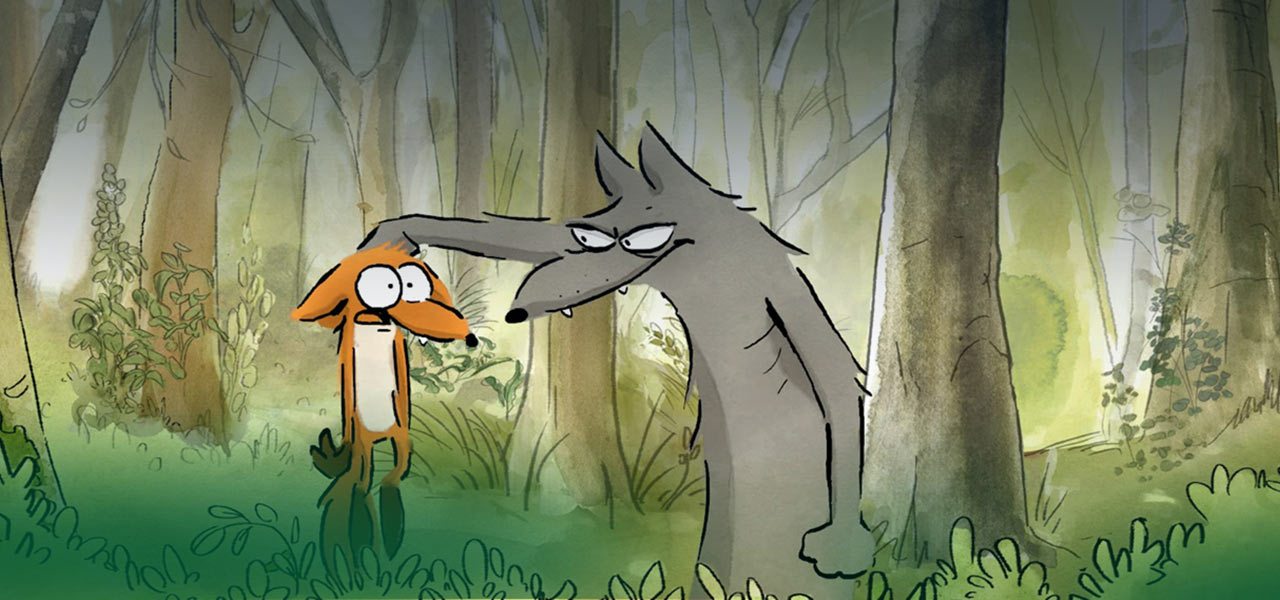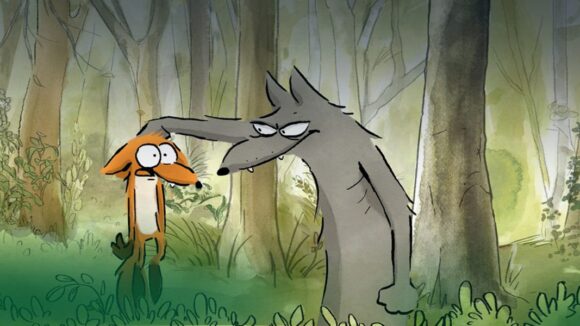

Everything You Need To Know About Animation Is Film, The New Festival Starting In L.A. Tomorrow
If you live in the United States, it’s easy to miss the global feature animation boom happening right now.
Every year, an ever-expanding number of unique and innovative animated features are released in other countries, but they rarely make an impact in the U.S, where a handful of entertainment conglomerates spend hundreds of millions of dollars to ensure that their brand of slickly produced, narrowly-focused, family-friendly fare remains at the forefront.
Animation is Film, a new festival that launches tomorrow in the heart of L.A.’s film industry, aims to change the perception of feature animation in the United States, by giving a platform to all of the exciting work that is being produced in other parts of the world, notably Europe, Asia, and South America.
The festival’s name suggests its intentions: animation is much, much more than it is commonly understood to be in the United States – and all it will take is one weekend at the TCL Chinese 6 in Hollywood to discover this broader universe of animation.
Adding to the excitement surrounding the event, many of the films in Animation is Film’s feature competition line-up are premiering in the United States for the first time, including Nora Twomey’s The Breadwinner, Patrick Imbert and Benjamin Renner’s The Bid Bad Fox and Other Tales, and two Masaaki Yuasa features: Lu Over the Wall and Night is Short, Walk on Girl.
While the inaugural edition’s key focus is its feature film competition slate, there are other components to Animation is Film as well, including retrospective screenings of American classics like Snow White and the Seven Dwarfs and The Incredibles, and a screening of this year’s The Lego Batman Movie. Filmmakers from both The Incredibles and Lego Batman will speak after their screenings.
Virtual reality will also be presented in the Google VR Lounge, which will offer the opportunity to experience recent projects like Jorge Gutierrez’s Son of Jaguar, Flight School’s Manifest 99, and a Song of the Sea experience by Cartoon Saloon.
The festival is produced by GKIDS, the nine-time Academy Award nominated distributor of animated films such as The Secret of Kells, Ernest & Celestine, When Marnie was There, and My Life as a Zucchini, in partnership with Variety, Annecy International Animated Film Festival, and ASIFA-Hollywood.
GKIDS founder Eric Beckman says the festival will grow in future years, and he hopes to add a short films competition program, but he doesn’t envision a “sprawling animation festival” with tons of films, studio recruiters, tech demos, and the like. “There’s a ton of events that do that,” he told Cartoon Brew. “Animation is Film is really about being a very selective showcase for the highest aspirations of animation as a cinematic art form.”

Beckman has a clear vision for the event, since in addition to his role as a distributor, he has plentiful experience in the festival scene, having also co-founded the New York International Children’s Film Festival, which celebrated its 20th anniversary this year. Like that other event, Beckman believes that Animation is Film will find its footing and become an event that is independent of its current oversight by GKIDS.
Cartoon Brew spoke with Eric Beckman to find out some key details about Animation is Film.
Why Do We Need A Festival Like Animation Is Film?
Eric Beckman: Philosophically, for live-action, there’s been so many different kinds of movies made, at all different budgets, from big popcorn movies and romantic comedies to noir and smaller-scale dramas and musicals. There’s a million different kinds of movies with a million different kinds of budgets and for different audiences. But in animation, just because there’s been such success for these certain genres of animation, there’s been less exploration of what animation can be.
For historically contingent reasons, in the United States animation is mostly associated with either Saturday morning cartoons or Disney – or now Disney/Pixar/Dreamworks. There really needed to be a showcase for a higher aspiration of what animation can be, a broader definition. My feeling is that in some ways the best animated films have not yet been made, and the idea of the festival is to be an advocate for animation as a cinematic art form that’s as powerful and as important as live-action. There’s no real difference in filmmaking between the two other than the medium that the artist decides to utilize.

Why Is The Festival In October?
Eric Beckman: It’s not the easiest time of year to do a festival because it is such a busy time, but I’m still involved with New York Children’s [International Film Festival] and I really wanted Animation is Film to be at the opposite end of the calendar from that [which takes place in March] so we’re not competing for the same titles. And once we’re looking at the fall, I knew we wanted to be after Toronto, because [while] Toronto doesn’t show a lot of animation, they do two or three a year that are usually pretty significant, and again we don’t want to have to compete head-to-head. So this period after Toronto but before award season got going in earnest; it seemed like the best time period. It may shift a little in future iterations.
Could Animation Is Film have an impact on the Oscar race?
Eric Beckman: We are happy to be able to provide a showcase for what we feel are really deserving films. It’s hard with independent animation; the budgets are just so much smaller for both the production and distribution that it’s hard to provide the kind of visibility that you’d like to. So if this can be a platform for these films to be seen, we’d love that.

What’s the best way to experience Animation Is Film?
Eric Beckman: On Saturday and Sunday, you can see four or five films a day. Just go through the calendar and say, “I like this one, I like this one…” Bring some Visine and watch animation. It’s a film festival and that’s how you do it. We’ve tried to make it so that if you’re coming with children, you should be able to see all the films that are for younger audiences without them competing against each other too much.
What are some of the programming highlights?
Eric Beckman: We’re doing the world premiere of Virus Tropical from Colombia, a super interesting film. It’s based on a graphic novel, and [the author] Power Paola was inspired by Persepolis to put her own life story down in cartoon form, and subsequently a movie. We have Tehran Taboo, which played Cannes, making its North American premiere, which is a rather provocative film about how in a theocracy and patriarchal society, there’s a second world of partying, drugs, sex, and prostitution and all this goes side-by-side, and how in some ways to be emancipated means to break taboos.

We have three films from Masaaki Yuasa. He made Mind Game about thirteen years ago, which is an insane mindfuck of a movie. It’s really the most unconstrained animation I’ve seen that I can remember. I hadn’t seen it for years and I saw it up at GLAS last March and I was blown away. And after not making any movies for like a decade, he made two films in the same year: Night is Short, Walk on Girl and Lu Over the Wall. Night is Short like Mind Game also skews adult. It’s not as outrageous as Mind Game by any stretch, but it’s still more of an adult-oriented film. Lu Over the Wall is much more of a family film, but still just as weird and interesting as his other ones.

Mutafukaz has been a popular film in terms of early ticket sales. It’s a French-Japanese collaboration, very, very adult, guaranteed to offend large swaths of population, but it’s really funny and super, ultra-violent.
I really love this “Outlandish Lands” retrospective we’re doing which is Pre-Code 1930s animation one-reelers, which were all shown in theaters. It’s a reminder that in the pre-Snow White era, a lot of animation was really very adult in its nature, absorbing all the things in its immediate environment like Salvador Dali, Surrealism, Sigmund Freud, The Marx Brothers. We’re also doing this program with Women in Animation, “Songs of Love and Death,” a short film program of new and recent films by women filmmakers that revolve around the universal themes of love/sex and death. That’s a good program and also quite adult-oriented.
To buy tickets to screenings and other details on attending Animation is Film, which runs Oct. 20-22 in Hollywood, California, visit AnimationIsFilm.com.

.png)